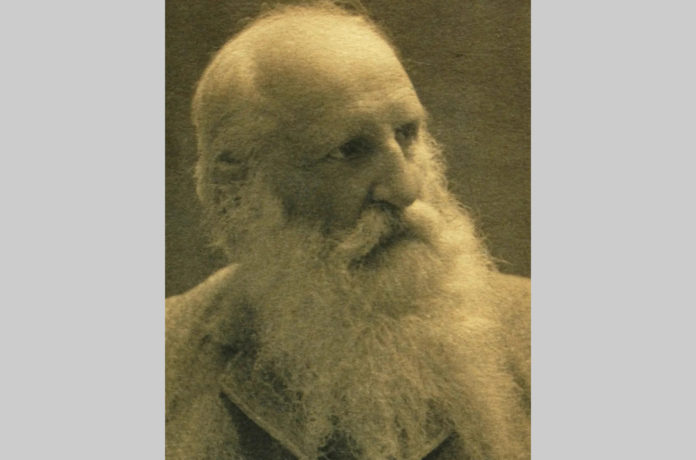|
Audio: Listen to this post | © ClassicBooks.com
|
A prominent Canadian psychiatrist, physician, and ardent student of the human mind, Richard Maurice Bucke maintained a strong friendship and devotion to Walt Whitman. He eventually wrote the book Cosmic Consciousness: A Study in the Evolution of the Human Mind in which the author features Walt Whitman amongst other notable men in history. He is also known for the dozens of professional articles that he published through his writing career. Besides, these and his famous book, he also wrote two other non-fiction books, namely Walt Whitman, and Man’s Moral Nature.
Education
Bucked studied medicine at McGill University’s medical school. He was an exemplary student, delivering one of the most compelling and distinguished thesis in 1862. After graduation, he practiced medicine for a short period with the sole intention of paying for his sea travel. He would later specialize in psychiatry as a profession. He was a big fan of positivist philosophy by Auguste Comte.
Career
His career as a psychiatrist characterized much of his life and even the books he wrote later on. In particular, the works he did with asylum inmates depicted him as a reformer. The psychiatrist encouraged organized sports which is today referred to as occupational therapy.
Bucke’s career in medicine was not all rosy. One of the most controversial encounters was his surgical treatments to remove women’s reproductive organs, believing that these organs were responsible for women’s mental illness.
The psychiatrist cum author had a cosmic consciousness experience in 1872, which he was sure to document in his famous book. This experience changed his life and inspired the writing of Cosmic Consciousness.
Personal life
Bucke was born in 1837 as Richard Maurice Bucke to a reverend Horatio Walpole Bucke and mother Clarissa Andrews. The family immigrated to Canada a year later after Bucke’s birth and settled in London, Ontario. At this time, the father had quit his profession as a religious minister and focused on the family farm in Ontario as the main source of income. Bucke grew up as a typical farm boy of this period.
Besides farming, Bucke spent his free time in athletics, preferring ball game. At the age of 16, he left his home and traveled to several places including Ohio, Columbus, and California. Throughout these traveling, the teen took on several odd jobs. It was not all fun traveling as Shoshone Indians often attack Bucke and his traveling group. They had to fight to survive as they crossed on other communities’ territories.
His adventurous nature almost cost him his life during 1857-1858’s winter in the mountains of California. Out of all the people who attended the silver-mining party, he is the only one who survived the tragedy. He walked out over the mountains, an experience that inflicted him extreme frostbite. Doctors had to amputate his foot and several toes, after which he returned to Canada through the Isthmus of Panama.
He married Jessie Gurd in 1865, with whom they had eight children. In 1879 he published ‘Man’s Moral Nature: An Essay’, which he dedicated to Walt Whitman, the man of most exalted moral nature. In 1883, he published a book about ‘Walt Whitman’ under that title.
Only a short time after he published his magnum opus on ‘Cosmic Consciousness’ in 1901, Bucke slipped on a patch of ice in front of his home and struck his head, on February 19, 1902. He died a few hours later without regaining consciousness.








